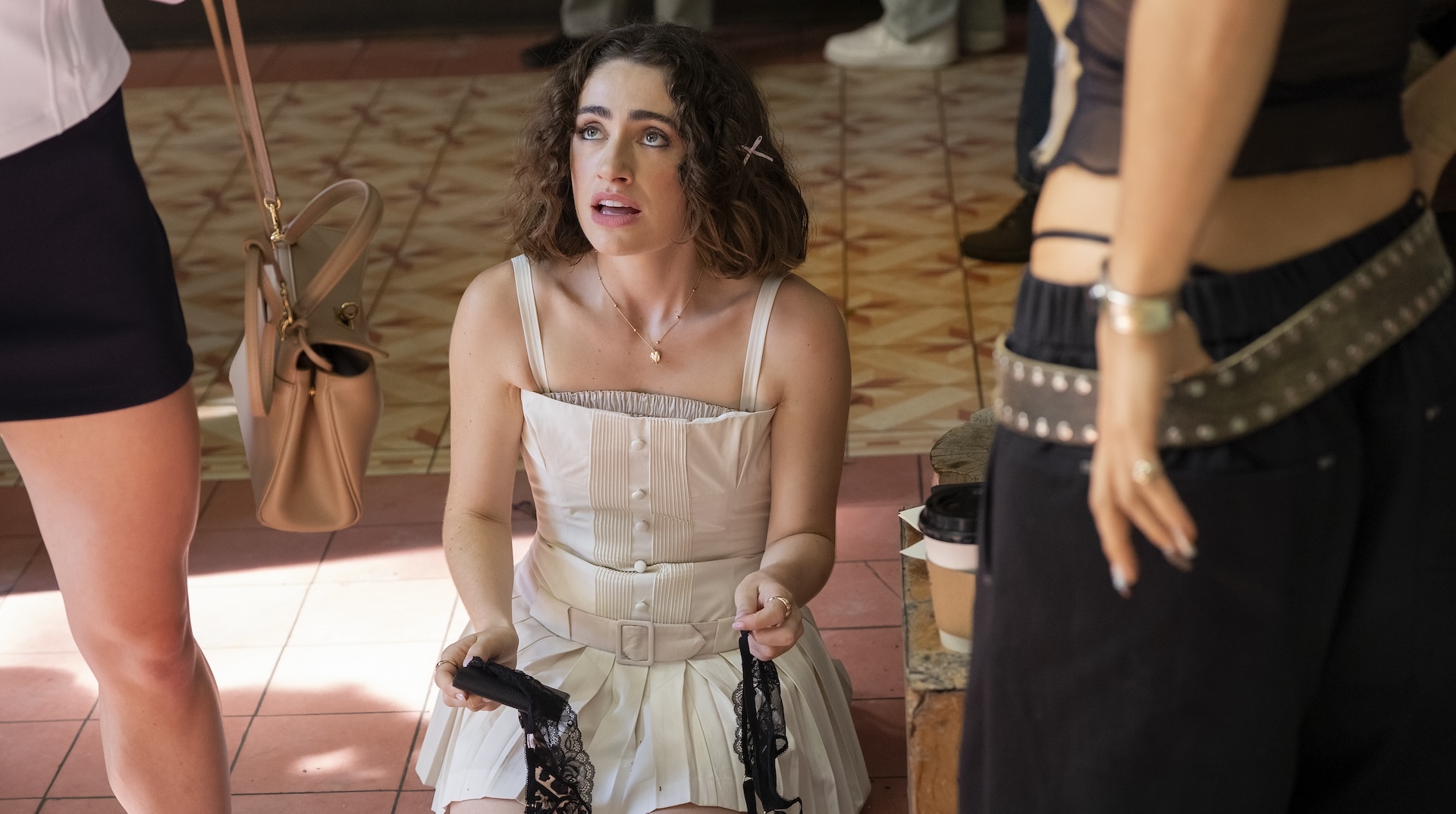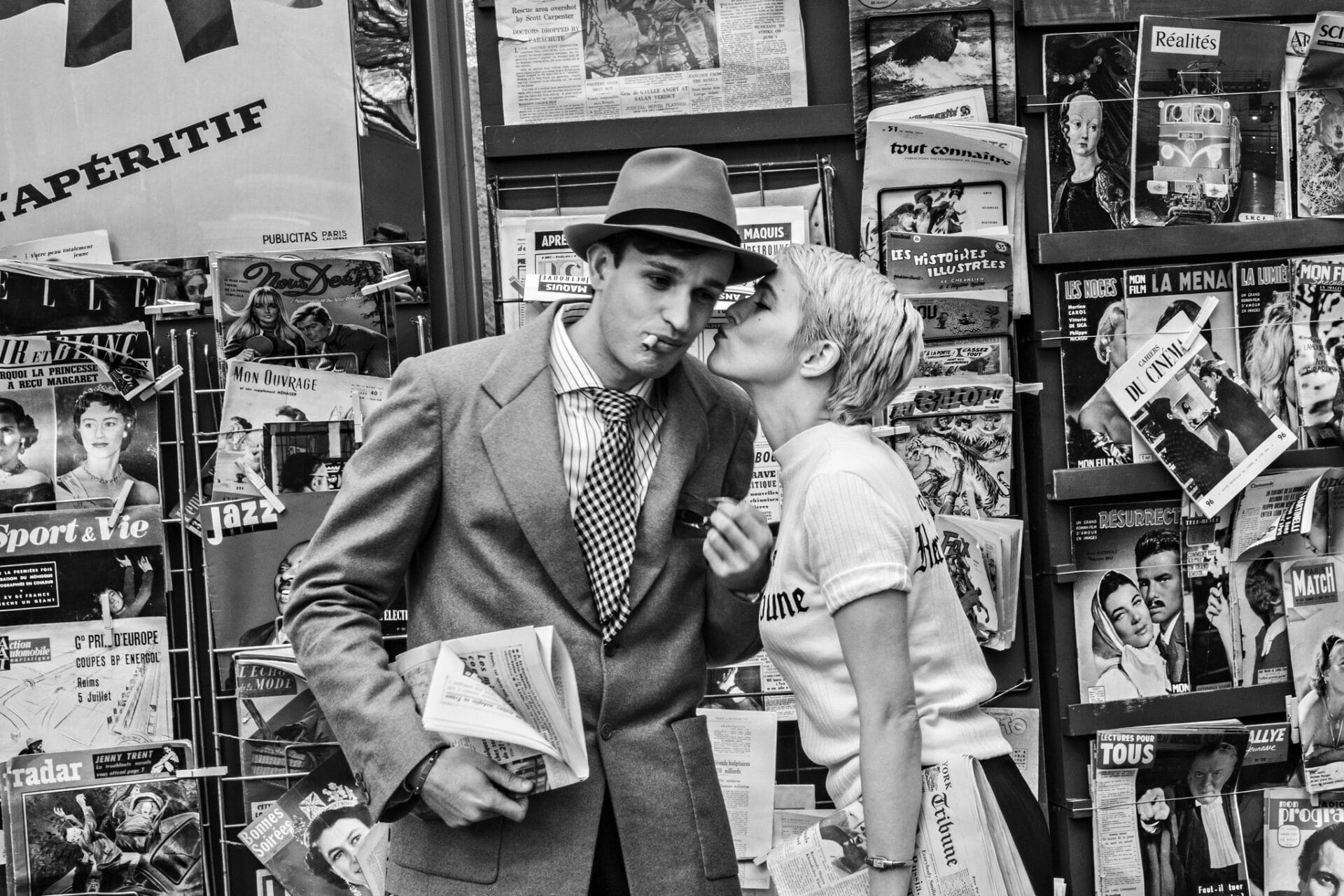
Welcome to My Favorite Scene! In this series, IndieWire speaks to actors behind a few of our favorite television performances about their personal-best onscreen moment and how it came together.
Flowers are still a wonderful way to say, “Congrats on your recent awards recognition!” But you’d think someone would have sent two-time Emmy nominee Meghann Fahy — the magnetic star of Netflix’s delicious “Sirens,” from showrunner and playwright Molly Smith Metzler — an Edible Arrangement by now. After all, one was her scene partner in one of her signature sequences in the Netflix series.
“I actually haven’t gotten one of those yet, which is fine by me, because, girl, I dragged that thing around for what felt like weeks,” the actress recently told IndieWire. “It was very heavy. I would guess like 33 pounds, maybe? Give or take. It’s a real unit.”
Nominated for Outstanding Lead Actress in a Limited or Anthology Series or Movie — at the 77th Primetime Emmy Awards on September 14 — Fahy spends a big chunk of the first “Sirens” episode figuratively shackled to a bouquet of fruit. The misunderstood sweetheart she plays, Devon DeWitt, doesn’t care for perishable greeting cards either.
Skewered melon balls become an inciting incident for the seriocomic miniseries, when Devon’s estranged younger sister, Simone (Milly Alcock), mails one of these citric free-weights back to home in to Buffalo — instead of visiting the girls’ ailing dad (Bill Camp) while he’s worsening from dementia.
“You learn so much about the two characters in the middle of the show. Their childhood was very dark and sad and scary, and I think you realize Devon’s sense of self came from being useful to her sister,” said Fahy. “Her sister really needed her, and she was able to take care of her in a way that she felt really proud of — stepping up to be the main caregiver when she was still a kid. But she never really got to develop a sense of self beyond that, so when her sister leaves, she doesn’t really grow.”
Pissed off by the star-shaped pineapples dropped off at her doorstep, it’s not long before Devon goes to confront Simone on the idyllic island where she works as an assistant for the ethereal-yet-unsettling Kiki (Julianne Moore). When Devon arrives on too-beautiful Port Haven, she has the rotting care package in tow. Yes, Simone should help out with Bruce, but Devon also wants to make a point.
“I always feel sympathetic toward these women in a way that I think probably comes through because I’m truly fascinated by their trauma,” said Fahy. “For Devon, I hope that by the end people feel like she’s probably going to go back in some capacity to the life that she was living before, but that she’s going to make some changes that make her feel better about herself — for herself.”
To Fahy, the emotional journey Devon undertakes starts and ends in the realization that she “doesn’t know how to feel good about herself.” The actress explored similar questions about motherhood and self-esteem — albeit from a wildly different angle — when she got her first nod from the Television Academy in 2023 for appearing as Daphne in “The White Lotus” Season 2.
Fahy was up for Outstanding Supporting Actress in a Drama Series back then, but she was drawn to the more antagonistic role for “White Lotus” by the same seductive song of psychology that united her and Devon. Speaking to IndieWire about her favorite scene from the Emmy-nominated “Sirens,” Fahy looked back on an eight-page fight — filmed as a one shot — that doubles as a psychic map for the entire show.
The following interview has been edited and condensed for clarity.
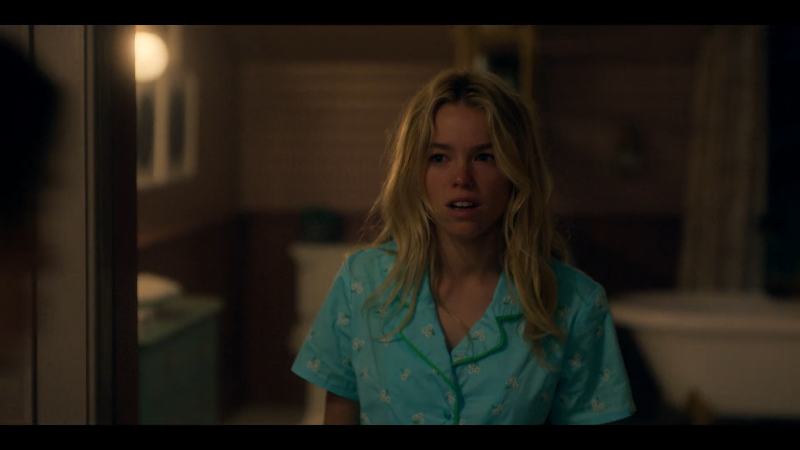
IndieWire: Please, tell me about this confrontation between Devon and Simone that kicks off Episode 2, “Talons.” Why was that your favorite scene in “Sirens”?
Meghann Fahy: There’s so many different components that make it my favorite scene. The first one is just the length of it. It’s like an eight-plus page scene, which is pretty rare for television. But the creator of “Sirens,” Molly Smith Metzler is a playwright, so I think she’s very unafraid of writing longer dialogue. So, that in and of itself is always really exciting as an actor. The subject of is a lot of context to the sisters’ relationship. It’s sort of the first time that you really see the two of them together in a private space where they’re really being themselves with each other.
Then, I think just the way that we were able to shoot it. Nicole Kassell directed that episode — the first two episodes, actually — and she’s incredible. I just was so grateful that she decided that it was really important to prioritize Milly and I being able to do the scene all the way through without breaking it up into a bunch of different parts.
The scene takes place in four different spaces. She comes into the main room. Then, they’re in the closet. Then, they’re in the bathroom. And finally, they’re in the bedroom by the time that Kiki [Julianne Moore] comes in at the end and interrupts them. We were really, really hopeful that we were going to be able to figure out a way for us to do it without breaking it up into chunks, because it’s such an emotional scene in certain moments.
It’s written so well that it’s easy to get to those places when you’ve been saying all of the words, but to break it up into chunks puts a hole in the tire, in a sense. We had an amazing camera crew. We rehearsed it like a play. We didn’t really have marks on the floor to hit. We just kind of freestyled it. The camera operators were kneeling down on the floor with us when we were down, and they were up when we were up, and they were avoiding mirrors and staying out of each other’s way while also trying to get Milly and I at the same time. I’ve never had an experience like that on any set, and it really felt like every single person was coming together to help the other person achieve what they wanted to.
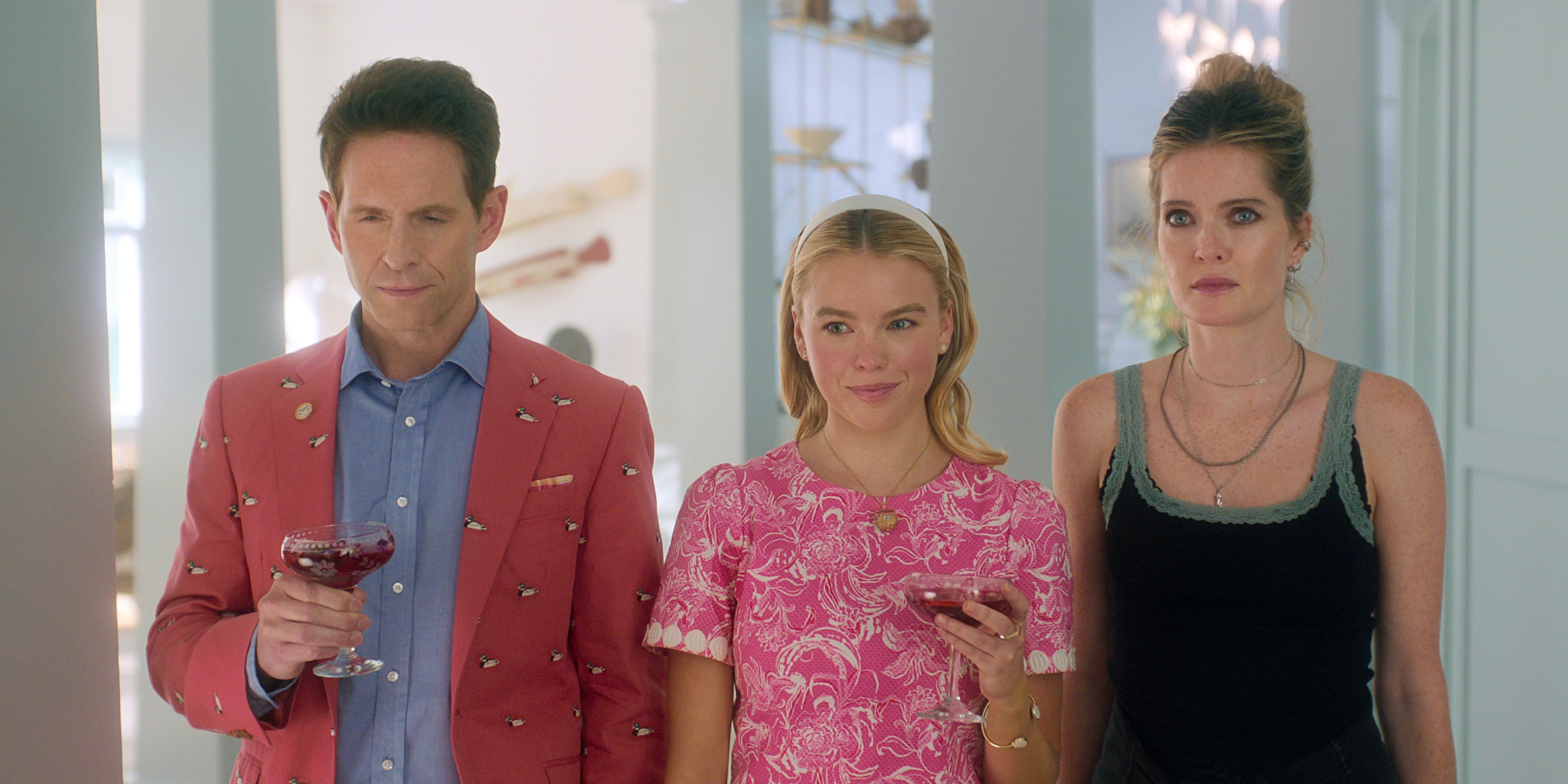
You’ve got that theater background, too. What did you and Milly do to rehearse, specifically?
We rehearsed the mechanics of it, but I think Milly and I both felt like the emotion of the scene was already right there because we just love the way that Molly writes so much. I was a fan of hers before this, and so I think Milly and I knew that once everything was in place, and we were shooting, everything would just be there because of the way that Molly wrote it.
We mostly just technically figured out what does this look like, and how does this feel, and what is the rhythm of this? Then, it was like, “OK, let’s wait until we’re actually rolling to get into it.” I remember at the end of the day when we wrapped, Milly and I both felt like we’d just gotten off a roller coaster at an amusement park. You know, when your body is kind of buzzy a little bit? It was that feeling.
You shot the entire scene in one day. Were you worried at all about breaking? Laughing at each other? Some of these lines are incredibly funny.
I had a hard time in general with that on “Sirens.” As soon as Glenn Howerton showed up, he was making me break a lot. Like, the scene where he shows up and he thinks that Devon is the valet, so he just throws his keys at her while she’s walking up the driveway? He has such an incredibly gentle sensibility to his comedy.
Bill Camp one day made us break. We were in the car doing this scene right before the gala where he gets in the front seat and we’re trying to go find Simone and she’s disappeared. Nobody knows where she is, and we’re all piled in the car. And he said something that made all of us crack up so hard, we were crying.
Once that happens, it’s so hard to come back from it. There, it was one line in particular that was making us die. And then it was like we would laugh knowing that that line was about to come up again in the scene, and it was really hard to put a lid on it to get through it. You feel like you’re a kid in school. Suddenly the director’s like, “OK, alright, relax.”
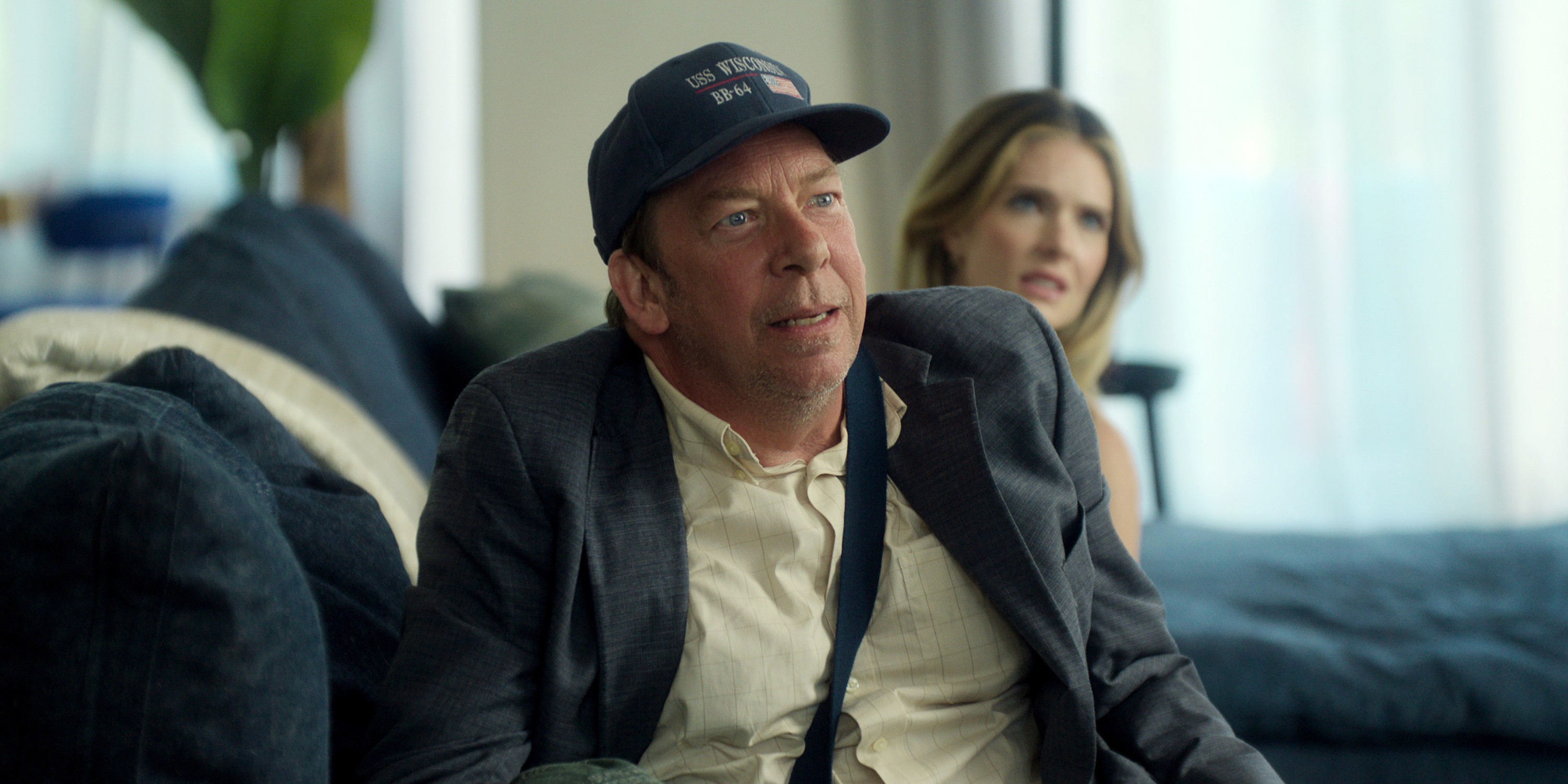
How did you manage that in this scene with Milly?
Sorry, I went on a tangent there!
[Laughs] No, I love it.
With that scene, there’s an intense emotional undercurrent all the way through. So, even the beats that feel really funny and comedic are always still a little bit sad. That was part of what I really loved about the show and why I wanted to do it so much, because that’s my favorite kind of thing. I always felt really connected to how there was sadness even in the funniest moments. Because of that through-line in that specific scene, it was pretty easy to stay in it.
It’s a real roadmap for so much of the rest of the tragedy of the show too, and it’s key to setting up the fierce protectiveness Devon has for Simone. How did you find that tone?
Devon needs help with their dad and everything, but I think her real journey is not knowing how to feel good about herself without being of use to her sister and being needed by her, which I think is probably how some mothers feel when their children leave the house. You know? It’s like Empty Nest Syndrome.
After a certain number of years, you’re so validated by taking care of and helping another person thrive that then, when they’re gone, you have to reevaluate. Like, “OK, what makes my life full on its own? How do I do that for myself?” That’s the journey Devon is really on the whole time. And I hope that by the end that people feel like she’s probably going to go back in some capacity to the life that she was living before, but that she’s going to make some changes that make her feel better about herself.
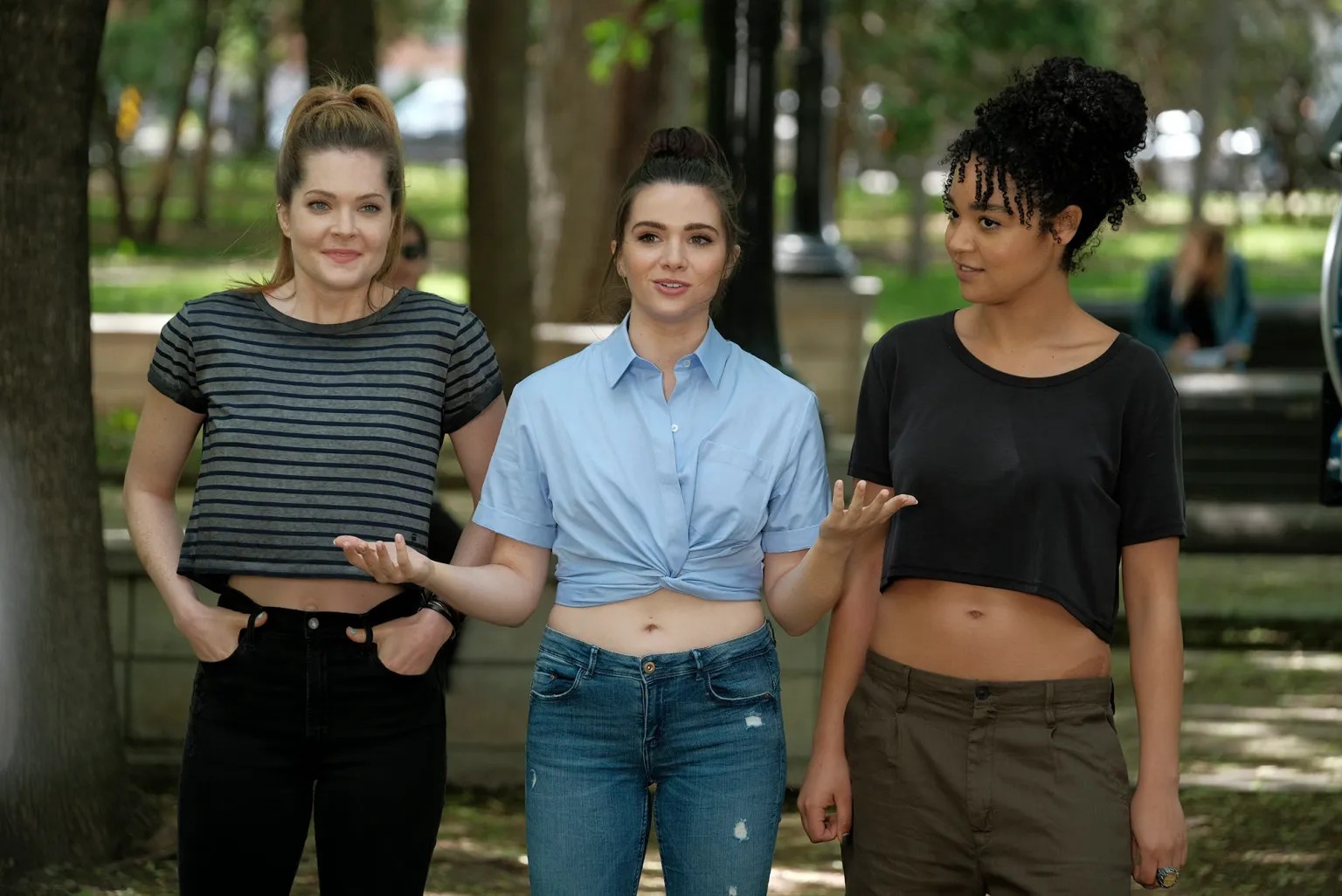
That blend of sadness and comedy, and even atypical family dynamics, run throughout a lot of your work. I’m thinking of Sutton from “The Bold Type,” growing up taking care of her alcoholic mom. Do you find you’re drawn to those types of roles a lot?
I guess I never really thought of it that way, but I do love the idea of comedy being used as a way of keeping people out of your past. I think for Devon too, she uses comedy as a way to keep people from really knowing her life and that’s not how comedy usually presents.
Comedy can feel very confident and it isn’t a lot of the time. I love that sort of balance — of Devon presenting as this person who is very comfortable with herself and doesn’t change who she is regardless of being in this setting where she’s clearly being judged. But then, the more you get to know her, the more you really get to see that she is constantly pushing people away, and the only person who’s ever really known her in any actual capacity is her sister.
When she feels rejected by her sister, that’s the real pain because that’s the only person who ever really saw her. So Devon feels like, “Well, if you don’t accept me, then I am worthless.” And that’s why she has such self-destructive tendencies and I am fascinated by that, yeah.
It’s reflected in the exterior of the characters too, with the costuming and styling consistently reframing that divide between them. In this scene for Episode 2, Devon comes in wet and starts going through all of Simone’s clothes to find something to wear. Talk to me about incorporating that visual element into the escalation.
I mean, I love physical comedy. I think it’s really fun, and I got to do some of it in this show for sure. Just getting out of a wetsuit is so awkward no matter how you’re doing it. And then, not knowing where any of the clothes are — or not liking any of them — I love that quality of her being really freaked out, but also a little impressed by the closet. Like, “Holy shit, this is your closet?!” So I think that sort of physical comedy component — in conjunction with the lines being really funny, and then also being really heavy hitting at the end — it was such a fulfilling experience all the way around. It really felt like problem-solving at the beginning. Like, “OK, how are we going to make all of these things marry each other in a way that makes sense?” and I loved figuring that out.
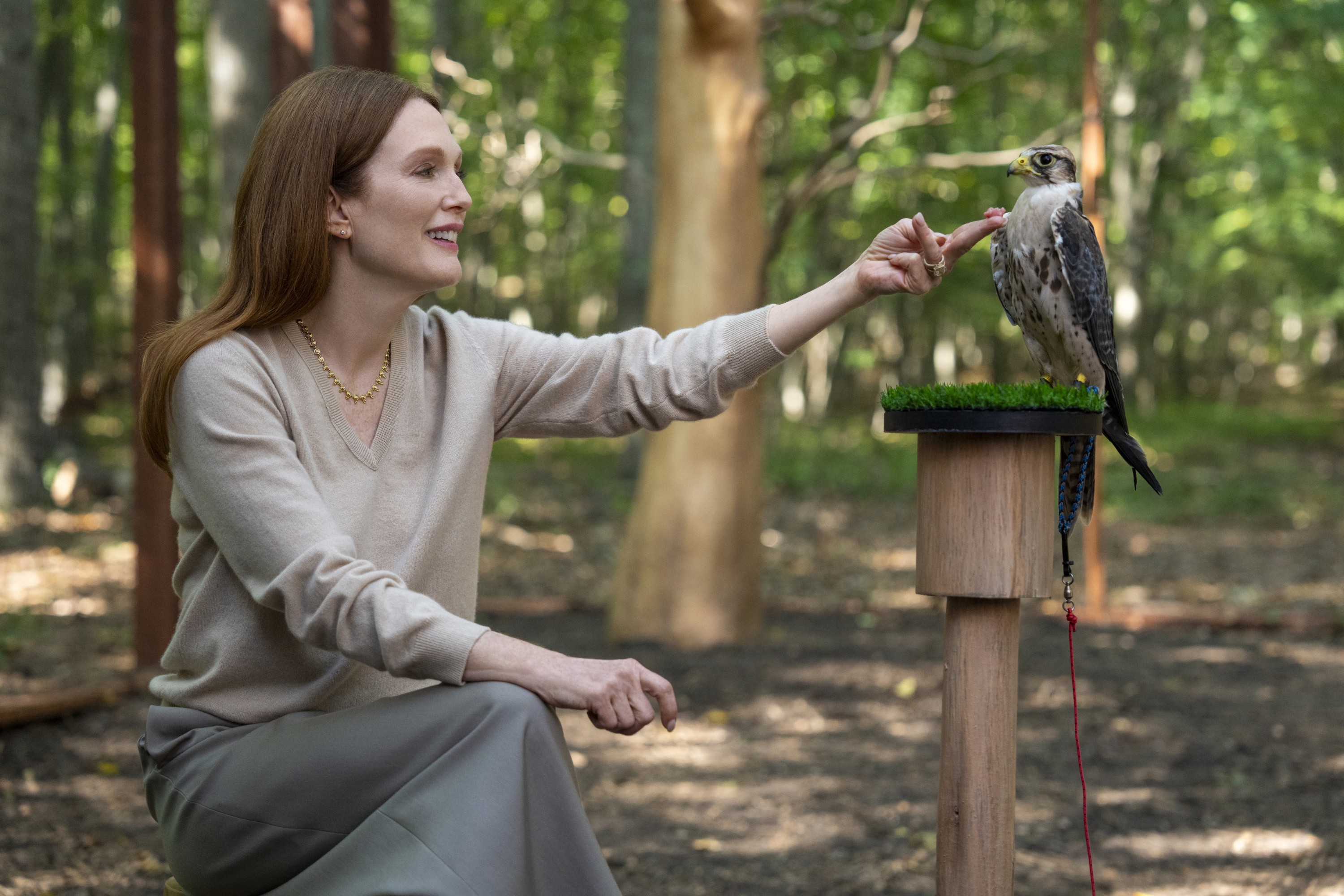
This scene also sets the stage for the audience’s slippery perception of Julianne Moore’s character and the bizarre relationship Kiki has with Simone. What’s it like to effectively project a first impression of another complex character on screen? Where do you start?
I think Molly did a really great job of writing Devon as being sort of the audience’s way into the story. She’s the eyes of the audience, in a way, and I love that Julianne’s character is sort of this ethereal, untouchable goddess-like creature to everyone but Devon at that point. Devon has her own moment with Kiki in the bathroom later, but at that point she’s like, “I don’t get it.” It’s almost like she comes in and she has this aura and it just doesn’t work on Devon.
There’s something funny about seeing that energy come to a halt when Devon is faced with it, whereas every other time we see Kiki, even the way the music changes, it’s all in support of this energy and this aura around this woman. I always loved that in that moment in particular, she’s like, “We’re busy. Can you get out?” I thought Molly did a really good job of creating that discourse.
Kiki has a different kind of response to that defensiveness too. Immediately trying to bring Devon deeper in, saying, “Have you heard about our recent trauma?”
Oh, my God, yes! And the way she says that line is so good. It’s so good!
Did you have a big reaction to Julianne saying, “Are you a mermaid, Devon?”
[Laughs] I mean, Julianne’s sensibility is also very stealth in this way that is really impressive to me. It’s so effortless for her and it’s so subtle, and I just think watching that play out in the show was one of my favorite parts. Without saying it, she’s kind of coming back at Devon being like, “I see you and I know what you’re doing, and it’s not intimidating to me, so relax.” You know what I mean? It’s a cool energy.

Unspoken tension between women in drama is such a specific thing to convey. In the spirit of the Emmys, when you look back on “The White Lotus,” people still talk about Daphne’s big phone reveal — when she effectively admitted that she was cheating on her husband without using those words. What do you make of that scene’s legacy?
I’ve always wondered and thought that maybe part of what has made that scene so memorable is that it’s a very unique combination of just coming out with this crazy thing and owning it, and also doing it in a way that makes you second guess whether or not that’s what happened.
I mean, it’s pretty obvious, right? She’s saying, “I have this trainer and you should get one, and this is why, and this is what he looks like, and here are my kids.” She’s literally saying exactly what you think she’s saying, but you just can’t believe that she came out with it. You kind of can’t believe it because it seems so crazy. I think people were really taken aback by the forwardness of that moment, I think in a way. And then also, just based on what everyone had learned about the character of Daphne up to that point, it was such a huge shift in how I think the audience saw her after that. I think it’s probably both of those things in some combination, but I don’t know. What do you think?
It’s complicated! And that duplicitousness is so key in “Sirens,” too. The whole show is a confrontation, from the fruit basket onwards. And that’s a difficult — maybe even a controversial choice? — for Devon to have made. But at least she’s coming out and saying it, right? How do you keep the audience on your side with characters like that?
I always feel so sympathetic towards them in a way that I think probably comes through because I’m fascinated by their trauma. It always comes back to family trauma, and asking, with every person who behaves badly, what is the reason for that?
I very rarely cannot feel sympathetic towards someone when I think about it in terms of that, and I often do with characters. That’s a huge part of my way in because it’s part of what fascinates me about humanity at large. I think about that for myself, for my friends, for people that I meet randomly, or waiters, everyone. I just feel like no one is exempt from that trauma and the manifestation of it and the varying degrees that that can show up in our lives and affect the way that we interact with other people. It’s like, oh, my God, I can’t get enough of it.
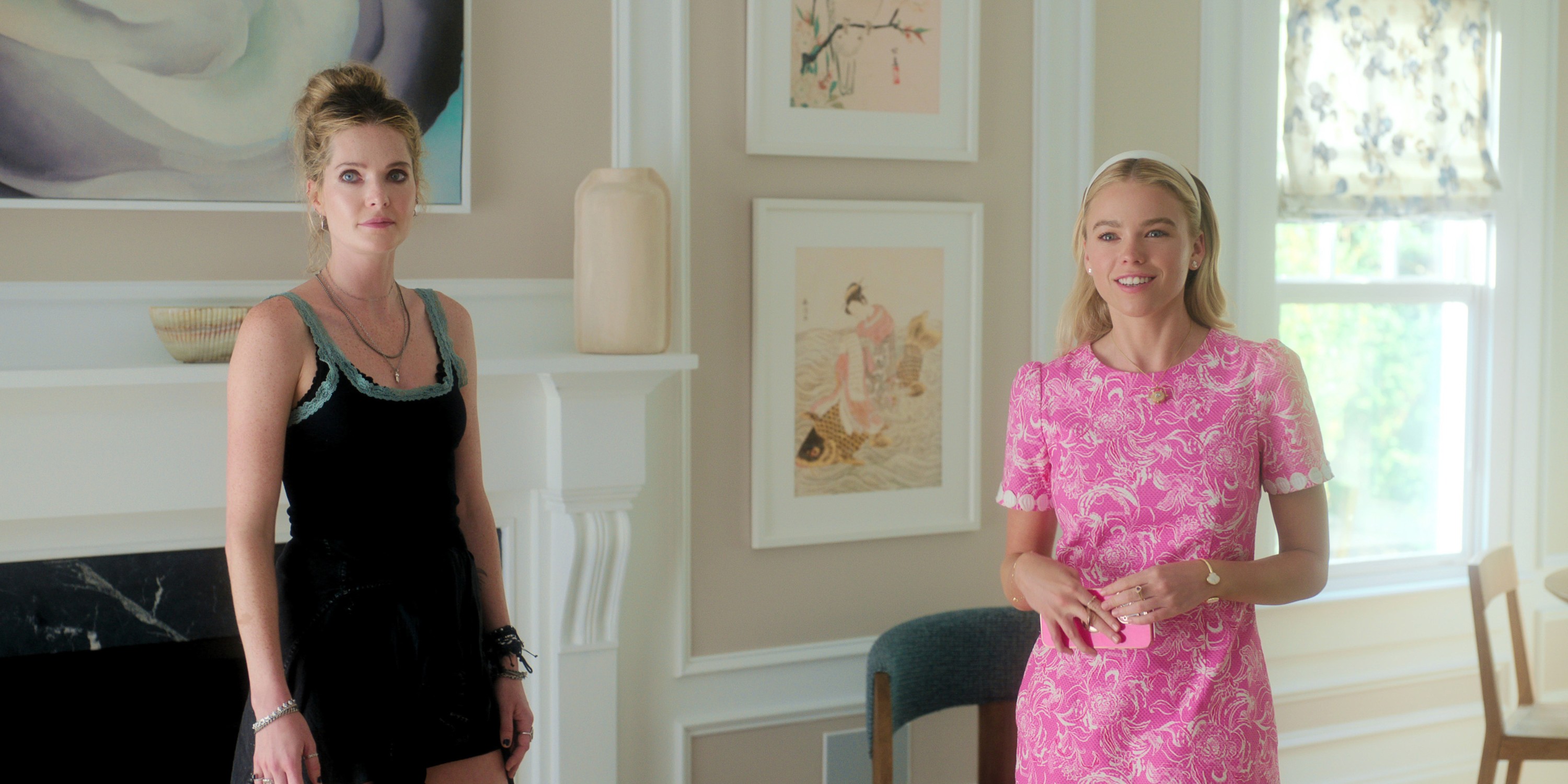
Is there a moment in particular from your favorite “Sirens” scene that captures that?
One of my favorite parts is that last line Devon has where Simone really lands a hard truth on her, which is like, “You’re just mad because you never left.” And she says, “I did leave. I was the original leaver. I just came back because I’m such a good sister.” And it’s so funny when she says it, but she’s also crying? I loved that line so much because it felt almost childlike, almost a little petulant. That’s the comedy. “I was the original leaver.” Molly wrote that line and I loved it so much because I think at that moment Devon knows that Simone is right.
I don’t have a sister at all, and I am not an older sibling. I’m a younger sibling. But I imagine that feeling — of your younger sibling who you’ve always felt was the baby that you were taking care of, telling you something about yourself that you’re not ready to face yet and seeing you in that way — I think it makes Devon really uncomfortable. That’s why she comes back with this sort of hurt, but also childlike anger at her sister. I just feel like that line contains all of those feelings in one sentence, and I just think that’s another part of that sort of thing that I love, that I actually have never spoken about that just popped into my head when you asked me that.
Do you think Devon did the right thing by confronting Simone?
I do. I ultimately do because I think that what happens is she gets closure. And I know that she realizes like, “Oh, I have to go out on my own now. My sister has made her choice. I have to accept that choice.” I think she shows up there because she can’t accept her sister’s choice to not want to be in her life anymore. That’s ultimately what it boils down to. And I think at the end of the weekend — which is another crazy thing, the show takes place over three or four days or something — she finally accepts that her sister has made her choice and now she has to go live her life on her own terms, the way that her sister is doing. And so I do think that it was ultimately worthwhile for her to go there. She had to go through that and see it with her own eyes so she could accept it.
I hope someone sends you a fruit basket of a reasonable weight in the near future.
[Laughs] I really appreciate that. Thank you.

